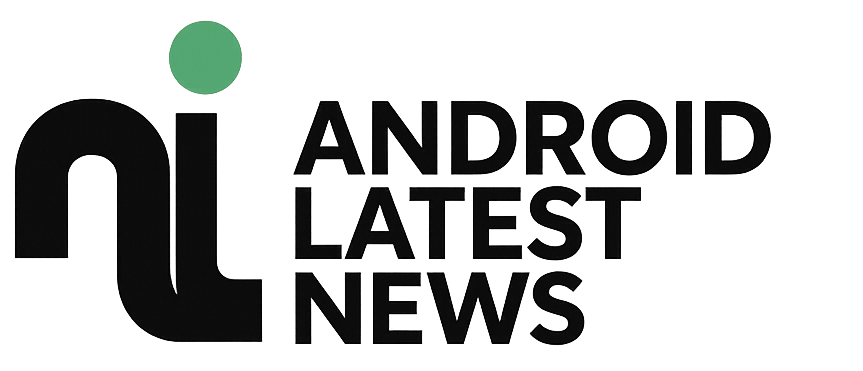In an unexpected development, an email circulated by Google’s Gemini team has raised eyebrows across the tech community, prompting concerns about the project’s trajectory and internal dynamics. As Gemini represents a critical advancement in Google’s artificial intelligence initiatives, the message has sparked a wave of unease among employees and industry observers alike. This article delves into the contents of the email, the reactions it has triggered, and what it could mean for the future of one of Silicon Valley’s most ambitious AI endeavors.
Concerns Raised by Google’s Gemini Team Email and Industry Implications
The leaked email from Google’s Gemini team has ignited a firestorm within the tech industry, casting shadows over the company’s internal dynamics and the future of artificial intelligence development. At its core, the message reveals a profound unease about project timelines, resource allocation, and the increasing pressure to deliver groundbreaking results without compromising ethical standards or product quality. Sources close to the project suggest that this disquiet is not isolated – it reflects broader industry challenges where innovation races against regulatory scrutiny and public trust.
The implications extend beyond Google’s corporate walls, signaling warning signs for AI stakeholders at large. Among the critical concerns highlighted are:
- Transparency issues: A call for more open communication about the limitations and risks of emerging AI models.
- Workforce wellbeing: Rising stress levels among engineers due to unrealistic deadlines and ambiguous expectations.
- Technology governance: The need for clear frameworks to prevent unchecked deployment of AI tools with far-reaching societal impacts.
This email underscores a pivotal moment for the industry – one where responsibility must match innovation, and where collaborative dialogue is essential to steer AI advancements toward safe and ethical horizons.
Analyzing the Potential Risks Highlighted in Internal Communications
Internal communications from Google’s Gemini team have surfaced, revealing a range of concerns that warrant closer scrutiny. Among these, operational delays and resource reallocations stand out as significant points of friction, potentially signaling underlying project management challenges. The correspondence also hints at increasing pressure on engineers and teams to accelerate timelines, raising red flags about the sustainability of current workflows and the risk of burnout. Such emphasis on speed could inadvertently compromise quality assurance measures, impacting the overall robustness of the Gemini initiative.
Furthermore, the emails underscore the persistent threat of external competitive pressures and the strategic necessity to remain ahead in AI innovation. There is a palpable anxiety about rival advancements, which may be driving decisions that prioritize rapid release over thorough vetting. The communications explicitly address concerns about data security and compliance with evolving regulations, factors that are critical but often sidelined during high-stakes product rollouts. Collectively, these elements expose a complex web of challenges-both internal and external-that could influence Gemini’s trajectory and its broader impact on the AI landscape.
Understanding the Impact on User Privacy and Security Standards
Google’s recent communication has cast a spotlight on the delicate balance between innovation and user trust. At the core of these concerns lies the potential reshaping of privacy protocols that govern the handling of personal information. The email’s ambiguity regarding data usage policies creates a challenge for users who depend on stringent security measures to safeguard their digital identities. This uncertainty can lead to increased apprehension about how personal data might be leveraged, highlighting the urgent need for transparent communication from tech leaders about their data management practices.
The implications for security standards are equally significant. As organizations like Google deploy advanced AI technologies such as Gemini, there is a pressing demand to revisit existing frameworks and establish new benchmarks focused on resilience and accountability. Key areas warranting attention include:
- Data anonymization practices to ensure user information remains confidential.
- Consent mechanisms that empower users to control what is shared.
- Audit trails for transparent tracking of data access and usage.
Only by addressing these critical factors head-on can the industry foster an environment where technological advancement does not come at the expense of fundamental user rights.
Recommendations for Organizations Navigating AI Development Challenges
To successfully traverse the complex landscape of AI development, organizations must adopt a multi-disciplinary approach, fostering collaboration between technical teams, ethicists, and legal advisors. This ensures not only innovation but also compliance with evolving regulatory frameworks. Investing in transparent communication channels within the development lifecycle can mitigate risks early, allowing for adaptive responses to unforeseen ethical challenges or technical pitfalls.
Furthermore, building a culture of continuous learning is paramount. Encouraging teams to engage with external research, attend workshops, and participate in industry forums helps stay ahead of rapid advancements and potential vulnerabilities. Organizations should also consider implementing robust peer review mechanisms and stress-test scenarios to evaluate AI models under diverse conditions, reinforcing resilience and reliability in deployment.
- Establish cross-functional teams to integrate diverse perspectives in AI projects.
- Prioritize transparency and maintain open documentation throughout development.
- Invest in continuous education to keep up with AI trends and ethical standards.
- Implement rigorous testing to identify vulnerabilities before deployment.
In an era where digital communication shapes both our professional and personal lives, the unsettling email from Google’s Gemini team serves as a stark reminder of the complexities and risks inherent in technological advancement. While Google continues to push the boundaries of innovation, this incident underscores the importance of transparency, vigilance, and accountability in safeguarding user trust. As users and industry watchers alike digest the implications, one thing remains clear: vigilance in the face of uncertainty is more critical than ever, and you are certainly not alone in seeking clarity and reassurance amid these evolving challenges.



